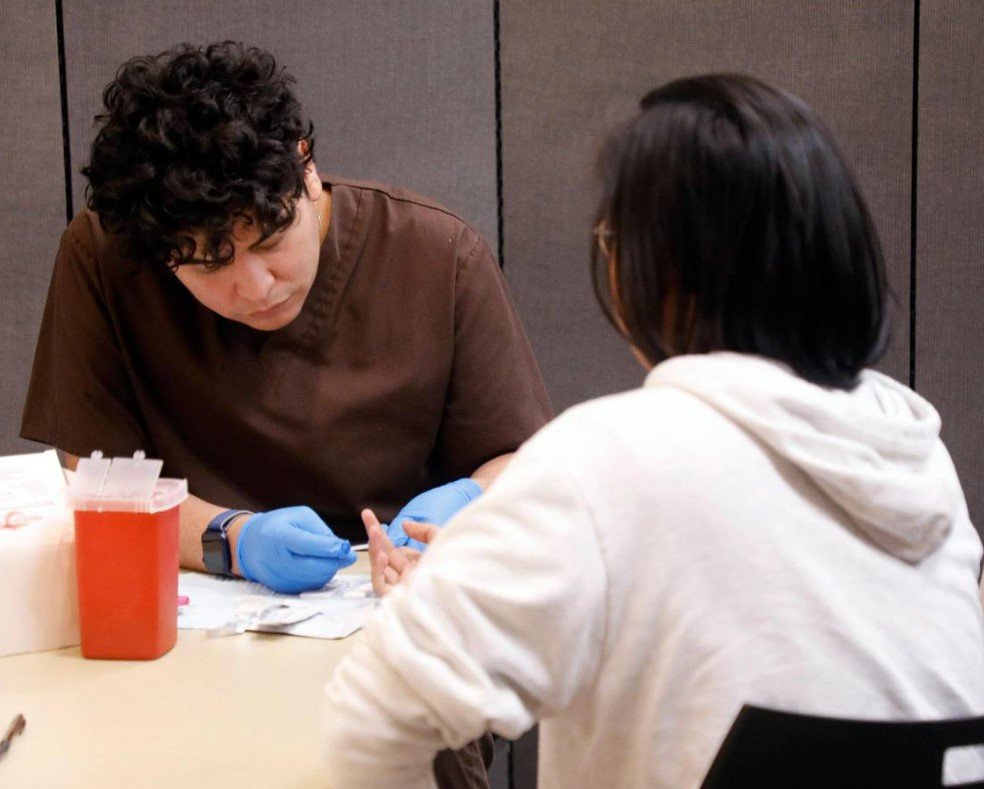What is congenital syphilis and why is it dangerous?
Congenital syphilis is a sexually transmitted infection (STI) that occurs when a pregnant woman passes syphilis to her baby during pregnancy or delivery. Syphilis is caused by a bacterium called Treponema pallidum, which can infect various organs and tissues in the body.

If left untreated, congenital syphilis can cause serious complications for the baby, such as:
- miscarriage, stillbirth, or premature birth
- low birth weight or growth problems
- birth defects, such as blindness, deafness, or bone deformities
- skin rashes, sores, or lesions
- anemia, jaundice, or liver problems
- meningitis, seizures, or brain damage
- death in severe cases
According to the Centers for Disease Control and Prevention (CDC), the number of babies born with syphilis in the U.S. in 2022 was over 3,700, which is 10 times higher than the number in 2012. Nearly 90% of those cases could have been prevented with timely diagnosis and treatment of the mother.
How prevalent is congenital syphilis in Travis County and Texas?
According to Austin Public Health (APH), congenital syphilis cases in Travis County increased by about 40% from 2018 to 2021. There were eight cases in 2018 and 11 in 2021. APH expects that number to double in 2022 and 2023, based on the current data.
Travis County is not alone in this situation. Texas accounted for nearly a quarter of the U.S. congenital syphilis cases in 2021 and ranked fifth in the nation for the highest congenital syphilis rates, according to the Texas Department of State Health Services (DSHS).
The DSHS reported that there were 680 cases of congenital syphilis in Texas in 2021, with a rate of 182 per 100,000 live births. The highest rates were found in the following counties:
- Arizona (232.3)
- New Mexico (205.7)
- Louisiana (191.5)
- Mississippi (182.0)
- Texas (182.0)
The DSHS also noted that the majority of the congenital syphilis cases in Texas occurred among Hispanic (54%) and Black (25%) mothers, and among those who were uninsured (44%) or on Medicaid (40%).
What are the causes and solutions for congenital syphilis?
One of the main causes of congenital syphilis is the lack of prenatal care and STI testing for pregnant women. The CDC reported that nearly 40% of the congenital syphilis cases in 2022 were among mothers who did not receive any prenatal care. Another 15% were among mothers who received prenatal care but were not tested for syphilis.
The CDC recommends that all pregnant women get tested for syphilis at their first prenatal visit, and again at the beginning of the third trimester and at delivery, if they are at high risk of infection. High-risk factors include:
- having multiple sex partners or a partner with multiple partners
- having a history of STIs or a partner with a history of STIs
- having sex without a condom or other barrier method
- living in an area with high rates of syphilis
- using drugs or alcohol
The only effective treatment for syphilis during pregnancy is benzathine penicillin G, which is an antibiotic injection that can cure the infection and prevent it from passing to the baby. The CDC states that adequate treatment can prevent congenital syphilis with a 98% success rate.
However, there is a shortage of benzathine penicillin G in the U.S., which limits the availability and accessibility of the treatment for pregnant women. The DSHS is working with the CDC and other partners to address this issue and ensure that the medication is distributed to the areas with the highest need.
Another challenge is the stigma and discrimination that may prevent some pregnant women from seeking STI testing and treatment. The CDC urges health care providers, public health systems, and communities to take additional steps to connect mothers and babies with the care they need, and to create a supportive and respectful environment for them.
How can congenital syphilis be prevented and controlled?
The best way to prevent congenital syphilis is to prevent syphilis in the first place. This can be done by:
- abstaining from sex or being in a mutually monogamous relationship with a partner who is tested and treated for STIs
- using condoms or other barrier methods correctly and consistently during sex
- getting tested for STIs regularly and before starting a new sexual relationship
- getting treated for STIs as soon as possible and notifying all sex partners
- avoiding sharing needles, syringes, or other drug paraphernalia
APH also recommends that all sexually active individuals get tested to know their sexual health status, and that they use the free and confidential STI testing and treatment services offered by APH and other local agencies.
APH also provides education and outreach programs to raise awareness and reduce stigma about STIs, and to promote healthy behaviors and practices among the community.
APH states that congenital syphilis is a preventable and treatable condition, and that everyone has a role to play in stopping the spread of this infection and protecting the health of mothers and babies.
